Jeremy Irons Has a Dark Horse for your Oscar Pool
December 23, 2016
Awards season is in mid-stride, loping toward our eventual exhaustion with the same six movies. But one man with a mild, mellifluous voice says “not so fast.” Jeremy Irons (whose shelf already holds one Oscar, one Tony, two Golden Globes, three Emmys, and a nomination from the Central Ohio Film Critics Association) feels a sense of urgency about a film released earlier this year, The Man Who Knew Infinity—and if it takes tongues-wagging about a possible best-supporting nod for himself to get people to notice this lower-budget film, then that’s what it’s going to take.
The Man Who Knew Infinity stars Dev Patel as Srinivasa Ramanujan, a largely self-taught mathematical genius who emerged from India in the early 20th century. He eventually made his way to England’s Cambridge University by sending his theorems to professor G.H. Hardy (played by Irons), who originally thought they were a prank. The film is a celebration of learning, of friendship, of cultural exchange, and concludes with a title card explaining how Ramanujan’s “lost notebook” is still being used to study black holes—a concept that didn’t even exist when Ramanujan was still alive.
Vanity Fair was scheduled to speak to Mr. Irons for 20 or 30 minutes, but we ended up chatting for an hour. His voice is just so rich and lovely that you don’t want to hang up.
Vanity Fair: You are a man with many projects, but I appreciate pumping the brakes to say, “Wait, I made a film worth reflecting on.” Do you feel an obligation to do this sometimes?
Jeremy Irons: I do, and especially with this film. It has a great effect on people who see it. I find it a very interesting story, very emotionally told. I’m always saddened because of the economics of the business. I have just been publicizing Assassin’s Creed, which has a great budget to make it and a great budget to sell it. So it’s going to be seen by millions, if not billions. These smaller films, it’s very hard to make them now. I feel justified in giving up time and talking about it again.
Do you have a relationship with mathematics?
I started it with this film. I mean, we all had a relationship at school, but I was pathetic. I wanted to be a veterinarian, and if I had a scientific mind I would have been one.
I read G.H. Hardy’s Mathematician’s Apology, which is a slim volume. It’s some of his letters, but also some of his thoughts about pure mathematics. And when I read it I thought, “Aha!” What it is for him, it’s like what poetry is for me, like space exploration, like painting! He discusses how all these equations and theories are out there, waiting to be discovered!
An artist can comprehend this and get inside the head of this man that, one has to say, was probably fairly high on the Asperger’s list. His social skills were appalling. He found it very difficult to look into someone’s eyes, even his own. It is said that if he traveled, to do a lecture, he would hang towels over the mirrors of the hotel room. But he’d been a brilliant student since he was seven. Kids who are geniuses often have social inadequacies. Their minds work differently.
Perhaps that’s why he wasn’t hung up on race or class, and when he met Ramanujan, he just recognized him for his mathematical mind.
The heart of the story is how that admiration and wonder at Ramanujan’s intellect crept into his emotions. When the boy got ill, he was surprised how he felt about another human being, the grief he felt when he went back to India. Hardy writes, “It was the only romantic episode of my life.”
The film makes you think that maybe there are more geniuses out there, and we maybe aren’t developing their minds.
It’s one of the problems of tick-box education. There isn’t a lot of money in it. Geniuses come from all parts of society, some rich, some poor. I wish we had an education system that smelled out those people.
Did you ever have a great mentor?
I don’t think he would have realized it, but Harold Pinter. One time we were having a conversation at lunch, early on in my career. I’d been doing a couple of plays and a film he had written [Betrayal], and I said, “I think I’m going to choose really carefully the work I do in my career, and not chase the money. Just do interesting projects.”
And he gave me a look that said, “Join the club. Go for excellence.” And I’ve retained that look.
You’ve worked in some amazing locations. What’s been the most striking?
Landing in Cartagena [for The Mission] when I was 36 or so, knowing I was going to work with indigenous Indians and the great film star Robert De Niro, and taking my shoes off on the plane. I knew that the Indians weren’t going to be wearing shoes and since I was going to be playing their friend—a Jesuit priest—I took my shoes off and I didn’t put them back on again for five months.
I have a big bit of Boy Scout in me. There was a scene where my character climbed up the Iguazu Falls. [Director Roland Joffé wanted] to do it with stunts, insurance, and all of that. I said, “Where is our producer?,” knowing that David Puttnam had flown to London the day before. I said, “There we are, he won’t know.” So I climbed up the extraordinary waterfall, of course supported by climbers well out of sight. I was very proud of that.
Jesuits are hot in Hollywood right now! Have you seen Silence?
I have not seen Silence yet, but I’ve read a bit about it. But the Jesuits—the thorn in the side of the Pope, is how they are described. The Jesuits are extraordinary people.
My mentor on The Mission was the late Daniel Berrigan. He described his job as “inflating a leaky balloon with faith.” I was the leaky balloon. If I had a difficult scene coming up, I would fast the day before. It really clears the mind.
And I would have a direct communication with God. I would talk to him just like I’m talking with you. I remember before one scene I said to him, “You’ve got to help me, because if I fuck up it will reflect very badly on you!”
Clearly you do a lot of research, but that isn’t always available for some films.
You talk to people. When I played Claus von Bulow [in 1990’s Reversal of Fortune], I talked to experts, read round it, tried to get to the truth of it. I mean, I don’t think I’m particularly Aspergic, but I think all men are, actually, all men have a level of that over women. My wife is always complaining. She says, “When you go to work the rest of the world could disappear as far as you are concerned.” She’s referring to the fact that I don’t call home every day.
You think men are more into that level of research as actors than women are?
No I don’t think as actors, I think men as a breed, as a sex, tend to have the ability to focus in on their work. I mean, after all, traditionally, we’d leave the house at 7 in the morning and get back at 5 or 6 doing something completely different from the family. Whereas women, you know, if they go to work they are forever on the phone to their children, they’re forever on the phone to work out what they are going to eat. They are able to multitask in a way that men can’t. So I think we may be very low on the level, but we’re there.
So you are an actor who prepares, but some don’t do anything. They show up, say their lines, and leave. Does this annoy you?
Not at all. I judge people by results. If they get there, that’s great. The only actors who get up my nose are the ones who don’t realize how high the bar is, how good it would be possible to make a particular scene. And there are many who don’t, and I just want to kick them up the bum and say, “Go off and do something else.”
So how do these people end up sharing a scene with you?
Oh, maybe they look right, maybe the person that casting wanted wasn’t available. Maybe they have a notoriety which is helpful to the film. It doesn’t often happen, but sometimes it’s someone with a great name but not a lot of experience.
There was a stretch in the 1990s where if a movie featured frank depictions of unorthodox sexuality, the role would go to you. Did you ever ask yourself why?
I don’t know. I don’t know. Damage? [Playwright] Josephine [Hart] wanted me to do it. Lolita? [Director] Adrian [Lyne] said he wouldn’t make it without me. David Cronenberg? I guess he thought I could do the twins [1991’s Dead Ringers], and then we got on so well we went on to do the Chinese film [1993’s M. Butterfly] with John Lone.
I think the portrayal of the sexual life was as important as any other life. Our sexual lives are surely 70 percent of what makes us what we are. I remember [making Damage], Louis Malle saying, “How are we going to do this?,” and I said, “We have to do it as accurately as we can as Josephine wrote it.” So . . . I’ll do anything.
I just finished a comedy called An Actor Prepares, where I have to walk out of a shower stark naked and play a scene with my son (Jack Huston) waving my family jewels around. They said, “How will we do that?,” and I said, “We’re gonna do it, that’s the scene!” It’s about a man who doesn’t give a monkey about anything. “For Christ’s sake, I’ll just be naked.”
I’m going to name someone you’ve worked with, and you are going to tell me the first thing that pops in your head that I don’t know about them. First, since we mentioned him already: David Cronenberg [director of Dead Ringers and M. Butterfly].
He looks forward to the end of the day when he drives home from the studio in a very tasty sports car, a Morgan or a Ferrari, often with me, and we have a hell of a drive back home, and we love that.
Toby Jones [co-star in The Man Who Knew Infinity].
Ahhhh, Toby. Toby is like me—he’s a wonderful actor, but spends the last half hour before the shoot panicking that he doesn’t know what he’s supposed to be saying. I’m glad to work with another actor like that because I’m always in a froth. Then the camera turns on and, of course, it’s magical.
Bernardo Bertolucci [director of Stealing Beauty].
Bernardo, the master of the developing shot. We would rehearse them for half a day and then perform them with the cameraman, like a ballet. I was just talking to his wife the other night. I’m not sure he’ll make another film.
Meryl Streep [co-star in The French Lieutenant’s Woman and The House of the Spirits]
She explained to me that the people driving you to work and being kind to you and making sure you have a nice hotel . . . that’s all designed so when the camera turns, you will be A-plus. And you should not be sidelined into thinking it has anything to do with your importance as a person.
Sir Laurence Olivier [co-star in Brideshead Revisited].
He never gave me any advice. Blokes are funny like that. But I remember sitting by the bed when we’re waiting for him to die, and for him to cross himself to show that he’s still a Catholic, which was a very important scene. I remember him lying there, and looking at me to see what I was going to be doing. And I saw the look in his eyes. And I thought, “Yep! It NEVER leaves you! You may be a knight. You may have run the National Theater. You may be our greatest living actor. But inside . . .you are still a lion! And you are looking to make sure this young buck is not going to do anything that will steal the scene from you!!”
Speaking of young bucks: Alden Ehrenreich, whom you worked with in Beautiful Creatures, is on the up right now.
I know, he’s in the Howard Hughes movie!
He’s also going to be young Han Solo.
Well, well, well. I think that’s fantastic. I was really very impressed with Alden. I wasn’t very impressed with the movie, but impressed with Alden. An easy talent. He is primed to have an interesting career. God bless him.
Tom Hiddleston [co-star in High-Rise and The Hollow Crown].
I think he has a fine career ahead of him. A tremendously nice guy with a lot physically going for him. The longer he lives life, the deeper he’ll become as an actor. He’s had quite an easy life ’til now, and as life hits him with its stones and arrows, he’ll deepen as an actor.
Why do you say he’s had an easy life?
Well . . . he went to a great school, and success hit him quite young.
How do you do a scene with him? Don’t you just fall into his eyes?
The thing about working with good actors that the camera likes is that it’s very easy. Working with bad actors is difficult, to stay in the belief system of the scene, when you see someone making wrong decisions. With Tom, it’s a joy.
Lastly, Glenn Close [co-star in Reversal of Fortune, House of the Spirits and the Tony Award–winning play The Real Thing].
Ohhhhhhh. Glenn is a pioneer, a real descendant of those brave people who got into boats and wagons and traveled across the country. A real American woman of the best sort. I love her. I love her toughness, but also her softness. My son just finished two films with her, actually, here in England, so I’ve seen a lot of her lately. And she gets no worse.
When I mentioned Beautiful Creatures, you said you weren’t too impressed with that movie. Actors never say that!
To my detriment, I am too honest about the movies I make. People have a lot of money invested, and you want to be helpful. And my opinions may not be valid. What doesn’t work for me may work for others. I don’t really seek out reviews, but I read them if I come across them. But more than reviews I feel the atmosphere. Assassin’s Creed, which I saw the other day, I think is a fantastic film.
I remember going on about Damage, how it wasn’t the film that I would have made. I love honesty. I am surrounded by people who say, “That was great,” but it wasn’t always great. It was all right.











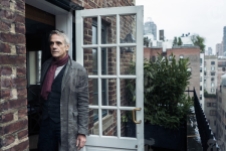















































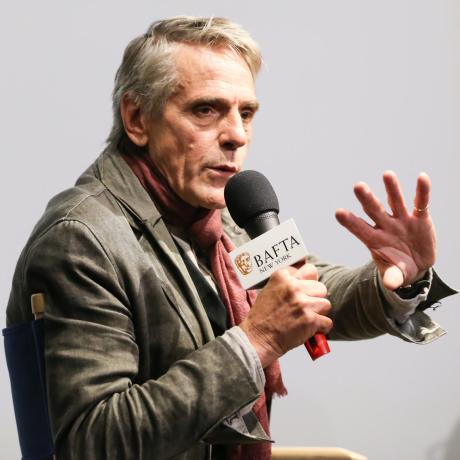






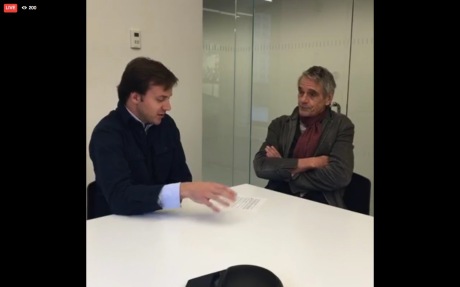











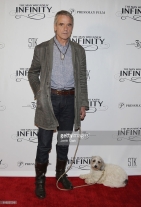










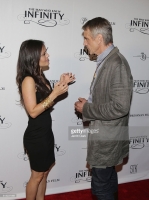




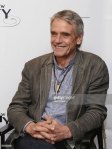



































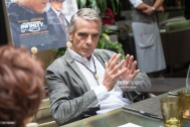






















You must be logged in to post a comment.